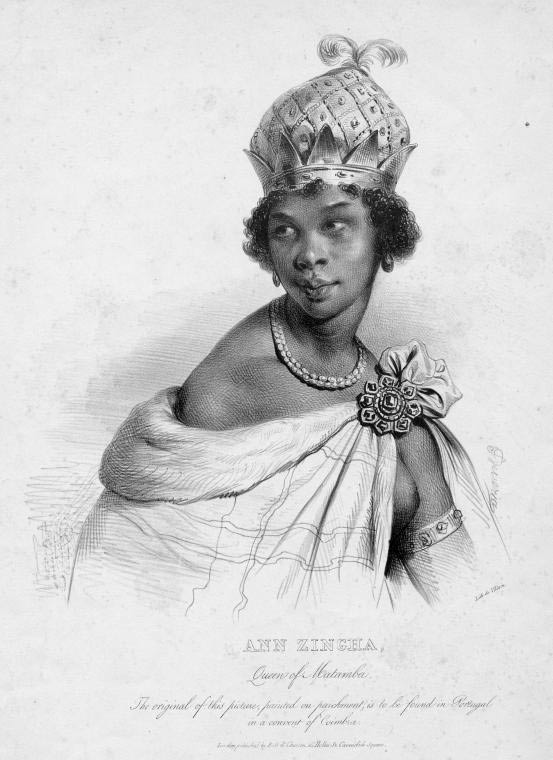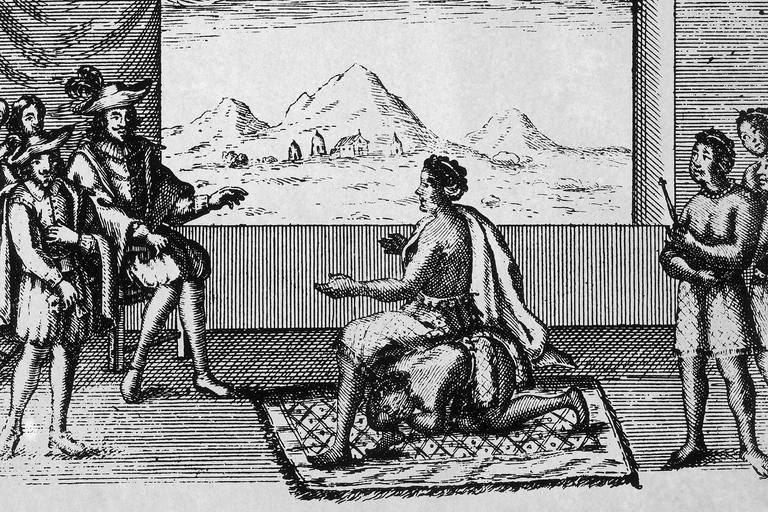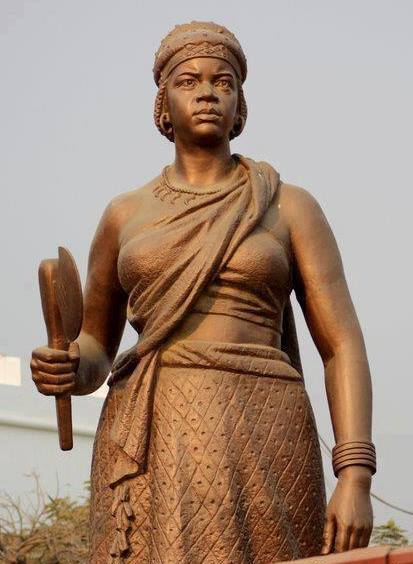Since it’s still Women’s History Month, let’s talk about another badass bossbabe today – Queen Nzinga of the Ndongo and Matamba kingdoms. In the last post, we were in China, so let’s head to the west coast of southern Africa, to what is now Angola, to learn about this amazing woman. I thought I’d learned a lot about women in history, but I surely never learned about her in any of my history classes. When I heard about her from @danger_de_maure on TikTok (seriously, go follow him for a TON of history I’m willing to bet folding money you’ve never heard), I had to do some more research.

Queen Nzinga was born in 1580, the daughter of Ngola Kiluanji Kia Samba, king of Ndongo. That same year, Ngola would begin to lead his people in a revolt against against the Portuguese. See, the Portuguese had been both sending raiding parties into the territories for slaves (colonies like Brazil relied heavily on slave labor), and trying to grab any land they thought might contain silver mines. We don’t really know what would have come of a longer reign by Ngola, since he didn’t have one, but he wasn’t killed by the Portuguese. His own son Mbandi took him out, and Nzinga and her husband, according to one source, fled to Matamba for safety. Other sources said she stayed in her brother’s court, but we do know that at one point in her life, she would end up in Matamba.
In 1621, the Portuguese would invite the king to a peace conference; Mbandi sent Nzinga to the conference as his envoy. In an attempt to make her look weak and inferior, the Portuguese had only put one chair in the room, forcing her to stand. Nzinga was not about that life; she had a male servant get on hands and knees and she used him as her chair. Some sources say that, when the conference was done, she slit the servant’s throat in front of the Portuguese representatives as a show of strength.

The negotiations appeared to be a success; the Portuguese restored Mbandi to the throne (they’d chased him out some years earlier), and agreed to limit their slave trading activities. The peace didn’t last long, though, and Portugal started up their old tricks a few years later.
When Mbandi died in 1626 (either by his own hand or by Nzinga’s), Nzinga took the throne of Ndongo. Portugal then decided that fighting their own battles was passè, and they hired the Imbangala to do their dirty work for them. Unable to handle this militarily at this point, Nzinga took her people and fled to Matamba. From there, she fought for THIRTY YEARS against the Portuguese. She would make alliances with Portugal’s European enemies (like the Dutch), offer refuge to runaway slaves, and offer sanctuary to any Portuguese trained African soldiers.
By the time she died, at the ripe old age of 82, she had been a serious thorn in the side of the Portuguese. Through both military action and shrewd diplomacy, she had built her kingdom into a power that could deal with Portugal on a level playing field.

Bossbabe, indeed.
If you’re enjoying this “women in history” series, or you have a bossbabe you’d like me to research, drop me a line!
WHAT I’M DRINKING:
Black Rifle Coffee “Just Black” – This stuff is GOOD, but if you’re not a fan of dark roast, it won’t be for you. This one is described as medium, but I think it’s on the darker side. Regardless, it’s got a bold flavor, and when adulterated the way I like (heavy cream and raw sugar), it’s hard to stop at just a cup or two.
MUG OF THE DAY:

FOR FURTHER RESEARCH:
Njinga of Angola: Africa’s Warrior Queen, by Linda M. Heywood.
The War Queens: Extraordinary Women Who Ruled the Battlefield, by Jonathan W. Jordan and Emily Anne Jordan.
Some of the links above may be affiliate links; if you chose to purchase any of the products above using the link, I get a little coffee money. It costs you nothing to use the link, and thank you if you do!